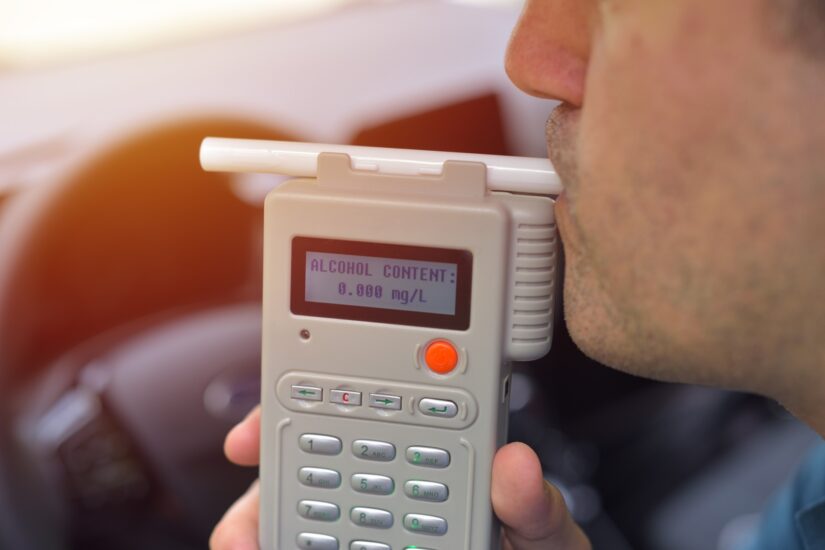
August 26, 2025
In Texas, a DWI conviction impacts your car insurance premiums significantly, with increases often lasting 3 to 5 years. Some insurers may extend this period up to 10 years, depending on their policies. Here’s what you need to know:
- Insurance premium hikes: Expect a 54%-68% increase on average, adding $649 to $762 annually.
- SR-22 requirement: You’ll need to file an SR-22 certificate for 2 years, proving you have minimum liability coverage.
- Driving record: A DWI remains on your legal driving record for life, but its influence on insurance rates fades after the insurer’s lookback period.
To reduce the financial burden:
- Maintain a clean driving record post-DWI.
- Compare rates from different insurers, as penalties vary.
- Consider completing alcohol education or defensive driving courses for potential discounts.
While a DWI has long-term effects, understanding how insurers handle these cases can help you manage costs effectively.
How Long a DWI Stays on Insurance Records in Texas
In Texas, there’s a clear difference between how long a DWI stays on your legal driving record and how long it impacts your insurance premiums. Understanding this distinction can help you navigate the consequences more effectively.
Duration on Legal and Driving Records
A DWI conviction in Texas is permanent—it stays on your driving record for life. Unlike some states where such offenses may eventually be removed, Texas enforces a lifetime lookback period for DWIs. This means your conviction will always appear on your official driving record, which can influence legal matters and professional evaluations indefinitely.
Insurance Lookback Periods
Insurance companies, however, operate differently. Most insurers in Texas review your driving record for DWI convictions within a 3–5 year period when calculating premiums, though some may extend this to as long as 10 years. This variability means it’s worth comparing rates from different insurers. One company might continue to penalize you for an older DWI, while another could consider you a standard-risk driver, potentially leading to significant savings.
If you maintain a clean record after a DWI, you’ll typically see your premiums decrease once the insurer’s lookback period ends. For many drivers, this reduction becomes noticeable after about three years.
How a DWI Affects Car Insurance Rates in Texas
A DWI conviction classifies you as a high-risk driver, leading to a sharp rise in your insurance costs.
Premium Increases After a DWI
In Texas, a DWI conviction typically causes car insurance premiums to jump by an average of 54%, adding about $762 to your annual cost. For instance, if you were paying $1,415 annually before the conviction, you could face a new yearly premium of approximately $2,178.
In some cases, the increase can exceed these averages. Premium hikes can range from 50% to 200% or more, meaning a policy costing $1,200 annually could soar to $3,600 or higher after a DWI. To make matters worse, some insurers may refuse to cover you altogether following a DWI conviction. If that happens, you’ll need to turn to high-risk insurance providers, which often come with significantly higher costs than standard policies.
But higher premiums aren’t the only challenge you’ll face after a DWI—legal requirements add another layer of financial and administrative burden.
The SR-22 Requirement
On top of increased premiums, a DWI conviction triggers the need for an SR-22, adding both complexity and cost to your insurance situation.
An SR-22 is a Financial Responsibility Certificate that your insurance company must file with the Texas Department of Public Safety (DPS). This document confirms that you meet the state’s minimum liability coverage requirements: $30,000 for bodily injury to one person, $60,000 for injuries to multiple people, and $25,000 for property damage.
The SR-22 requirement typically lasts 2 to 3 years, during which your insurance company is responsible for monitoring your coverage. If your policy lapses, gets canceled, or is terminated, the insurer must notify the DPS. A lapse in coverage—even for a single day—could result in your driver’s license being suspended. Additionally, insurance companies often charge filing fees for the SR-22, further raising your overall costs.
Texas offers three types of SR-22 certificates based on your driving situation:
- Operator’s Certificate: For drivers who don’t own a vehicle but operate someone else’s.
- Owner’s Certificate: For individuals driving their own vehicles.
- Owner-Operator’s Certificate: For drivers operating both owned and non-owned vehicles.
If you don’t own a car, you may qualify for a Texas Non-Owner SR-22 policy, which allows you to maintain legal driving privileges without owning a vehicle. Your insurance agent can help you determine which type of SR-22 fits your specific situation.
These legal and financial hurdles make it critical to understand how a DWI conviction impacts your insurance and what steps you need to take to stay compliant.

Factors That Affect Insurance Rates and Duration After a DWI
A DWI conviction can have a big impact on your insurance rates and how long those higher premiums stick around. Several factors come into play, from the policies of your insurance company to your personal driving history.
Insurance Company Policies
Insurance companies handle DWI convictions differently, which means the rate increases and penalty durations can vary a lot. In Texas, most insurers apply DWI-related rate hikes for about five years. However, for repeat offenders, some companies may extend the penalty period to as long as 10 years.
Some insurers focus on providing coverage for high-risk drivers, including those with DWIs, but these policies often come at a higher cost. Beyond the insurer’s policies, your personal driving history plays a crucial role in determining your rates.
Driver-Specific Factors
Your individual driving history and personal circumstances heavily influence how much your premiums increase and for how long after a DWI. Younger drivers, especially those under 25, tend to face the steepest rate hikes. Male teen drivers, for instance, pay an average of $754 more annually than their female counterparts after a DWI.
If you already have a history of speeding tickets or accidents, a DWI can push your rates even higher—or, in some cases, lead to a denial of coverage altogether. Another critical factor is your credit score. In Texas, the difference in premiums between drivers with the best and worst credit scores can exceed $1,500 annually. Insurers in the state often use credit-based insurance scores to assess risk, meaning drivers with better credit generally pay less.
The good news? Keeping a clean driving record after a DWI can help lower your premiums over time. Insurers periodically reassess risk, so demonstrating safe driving habits can gradually reduce the financial impact. Ultimately, both the insurer’s policies and your own driving behavior shape your long-term insurance rates.
Ways to Reduce Long-Term Financial Impact
Minimizing the financial burden of a DWI requires thoughtful planning and deliberate actions. From keeping your driving record clean and completing educational programs to exploring affordable high-risk insurance options, there are steps you can take to lessen the impact. While a DWI conviction can elevate your insurance premiums for years, showing a commitment to responsible driving can help reduce the costs over time.
Maintaining a Clean Driving Record
The best way to lower your insurance premiums after a DWI is by avoiding further violations. Each year without incidents demonstrates to insurers that you’re becoming a safer driver, which can gradually lower your perceived risk.
Make it a habit to review your Texas driving record for errors and address any discrepancies promptly. For example, if you fix a minor issue like a broken taillight, submit proof to the DMV. In Texas, first-time offenders may qualify for record sealing under specific conditions, such as having a BAC below 0.15 and no accidents. Additionally, the state offers deferment options for certain infractions, allowing you to pay a fee to keep the violation off your record. Beyond maintaining a clean record, taking steps like enrolling in educational programs can further help reduce the long-term financial strain.
Completing Educational Courses
Participating in alcohol education programs not only fulfills legal requirements but also demonstrates accountability, which can lead to benefits like reduced fines or shorter license suspensions. In Texas, completing these programs is often mandatory for license reinstatement. Courts may also take your participation into account during sentencing or plea negotiations.
From an insurance standpoint, completing a defensive driving course can sometimes earn you discounts. Some Texas insurers reduce premiums by as much as 10% for drivers who finish certified courses. These programs are relatively inexpensive, with alcohol awareness classes from providers like Texas Court Classes starting at just $25. These efforts not only help with compliance but also position you to find more cost-effective insurance options.

Texas Legal Requirements and Resources
Understanding Texas’ legal obligations after a DWI is crucial for getting back on the road and managing insurance expenses. The state has specific rules you must follow, and having the right legal guidance can make navigating these obligations much smoother. These requirements also directly impact your insurance responsibilities, as explained below.
State-Mandated SR-22 Filing and Insurance Minimums
Texas law requires individuals convicted of a DWI to file an SR-22 certificate with the Texas Department of Public Safety. This certificate proves you have the minimum required liability insurance and must be maintained for two continuous years. If your coverage lapses during this period, the state is immediately notified, which could result in a suspended license and an extended SR-22 obligation.
While the filing fee for an SR-22 is minimal, the real financial burden comes from increased insurance premiums. After a DWI, drivers in Texas often see their rates jump by an average of 50.76%. For those required to file an SR-22, premiums can sometimes double or even triple.
To meet the SR-22 requirement, reach out to your insurance provider. If you don’t own a vehicle, you can still comply by purchasing a Texas Non-Owner SR-22 Insurance policy. Keep in mind that a regular insurance card or policy document won’t fulfill the SR-22 requirement.
How The Napier Law Firm Can Help
Once you understand the legal requirements, having skilled legal support becomes essential for managing compliance and the financial challenges that follow. The Napier Law Firm, based in Harris County and serving the wider Texas area, focuses on DWI defense and offers assistance in navigating these complex issues.
George Napier, the firm’s lead attorney, uses his background as a former prosecutor to provide valuable insight into how the prosecution approaches DWI cases. This enables the firm to craft a strong defense strategy tailored to your situation. Their services include challenging evidence, negotiating plea deals, and advocating for your rights in court. They also guide clients through the long-term consequences of a DWI, such as SR-22 filing and dealing with higher insurance rates.
What makes The Napier Law Firm stand out is its dedication to client accessibility and service. The firm offers free consultations and is available 24/7 to ensure you get help when you need it most. Whether you’re dealing with SR-22 requirements, increased premiums, or other legal challenges after a DWI, The Napier Law Firm is committed to protecting your rights and helping you achieve the best possible outcome.